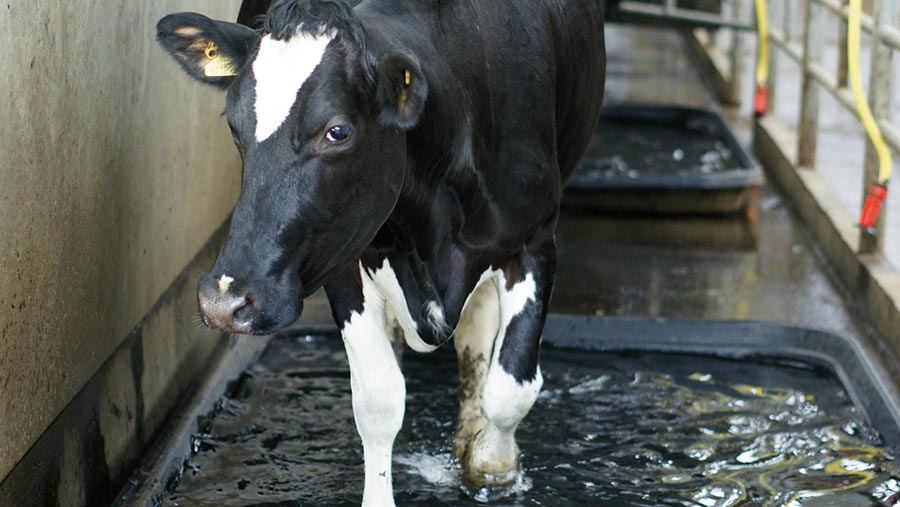Bovine TB control workshops could help save your herd
 © Anthea Kitching
© Anthea Kitching A series of regional workshops is under way, helping farmers understand and improve the measures they can take to reduce exposure to bovine TB.
Organised by XL Farmcare UK, in conjunction with XL Vets Training Services, Adas, the NFU and Defra, the workshops aim to give farmers simple biosecurity measures they can put in place to help protect their herds against bTB.
The sessions include classroom teaching on the bTB situation in England, current control measures and bTB transmission routes and epidemiology.
See also: Bovine TB not passed on by direct contact with badgers
Badger ecology and risk reduction for cattle-to-cattle and badger-to-cattle transmission, and risk-based training are also included.
Two events have already taken place. Here is a list of the remaining ones:
- 6 December: Holme Lacy College, Hereford
- 13 December: Reaseheath College, Cheshire
- 11 January: Moulton College, Northamptonshire
- 18 January: Sparsholt College, Hampshire
- 26 January: Brooksby College, Leicestershire
- 1 February: The Royal Agricultural University, Gloucestershire
- 15 February: Duchy College, Cornwall
- 17 February: Hadlow College, Kent
- 22 February: Moreton Morrell College, Warwickshire
All events will start at 10am.
To book your free place, please call XLVets Training Services on 01765 608489 or visit the Farmskills website.
Defra has also a poster on minimising the risk of bTB, you can view and download the PDF on the Defra website.
“Biosecurity is a key part of the government’s 25-year plan to eradicate bovine TB in England and I would encourage farmers to sign up for one of these events,” said government chief vet Nigel Gibbens.
Counting the cost
According to Defra, the estimated average cost of a bovine TB breakdown on a farm is £34,000.
Of this, it is estimated £20,000 is borne by government, mainly as compensation for animals compulsorily slaughtered and the costs of testing.
A further £14,000 falls to the farmer as a result of the loss of animals, on-farm costs of testing, and business disruption because of movement restrictions.
